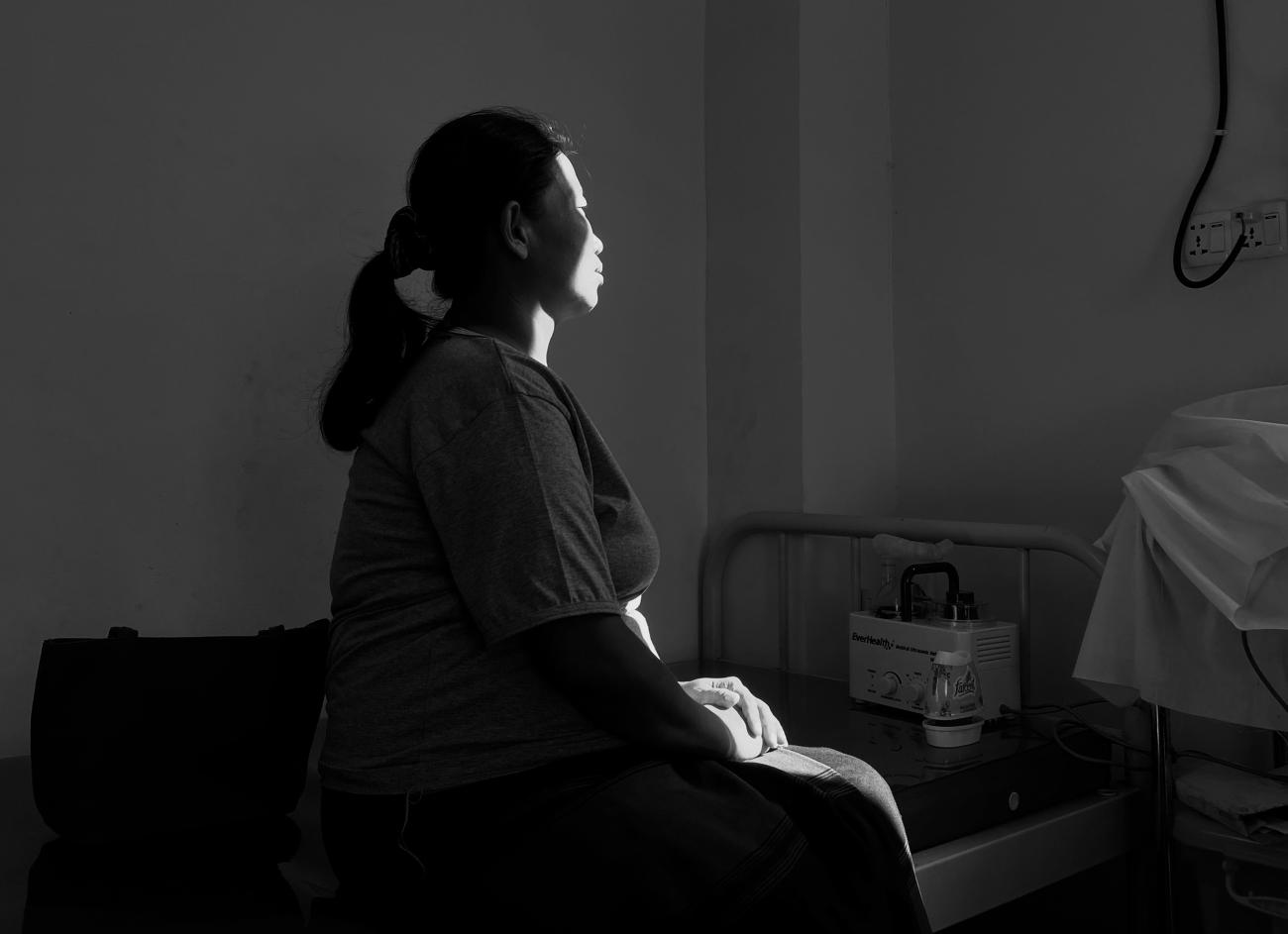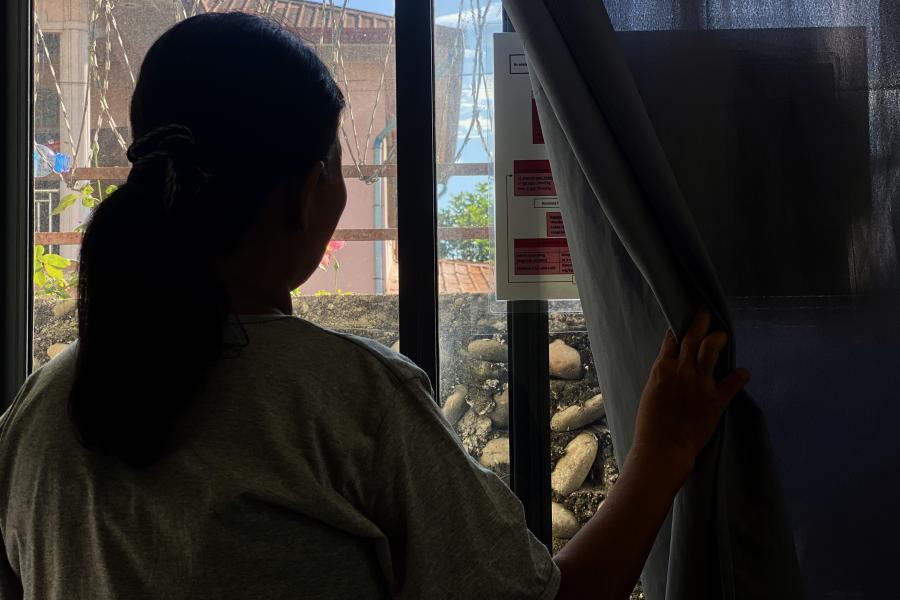A Second Chance

Fighting HIV with Hope and Resilience in Myanmar
In a small clinic in Myitkyina, Kachin State, in northern Myanmar, 41-year-old Daw Lai sits quietly, her hands resting protectively on her growing belly. It’s been a stressful few months since she first heard the words that changed her life: “You’ve tested positive.”
“I never thought something like this could happen to me,” Daw Lai says, recalling the day she tested positive for HIV during an antenatal care screening. Her husband's history of drug use had raised concerns, but she never imagined it would affect her in this way.
“At first, I couldn’t sleep. I cried so much. I was embarrassed and scared,” she says. “My biggest fear was my children—what if they’re also infected? And what about the baby I’m carrying?”
Finding support and strength
She was later referred to a public health clinic in Myitkyina, where a team of dedicated healthcare workers provided more than just medical care - she received hope. “The health workers explained everything clearly and reassured me that if I followed the treatment plan, my baby could be born healthy,” she says.
The clinic provided counselling on protecting her unborn child through the prevention of mother-to-child transmission (PMTCT) programme and arranged further tests, including screenings for Hepatitis B and C, which came back negative.
Daw Lai started antiretroviral therapy (ART) alongside her husband in early November, a month after her diagnosis. “At first, I felt tired for a few days, but now I feel normal,” she says. ART is provided free of charge by the public health facilities in Myitkyina, not only for her but also for her children, should they ever need it.
The Journey to Acceptance
Daw Lai's journey wasn't easy. "I kept asking if the baby would be okay." "They reassured me that as long as I take my medicine at the same time every day, my baby won't be infected. But I still pray every time I take my pill."

Fears for their unborn children are common among expectant mothers with HIV, Ma Seng explains. “Many mothers don’t fully trust that ART can prevent mother-to-child transmission. They ask a lot of questions and need reassurance. That’s why we focus on counselling and education.”
UNICEF’s support for children and mothers
Reaching more women like Daw Lai is critical. With support from UNICEF, local volunteers from community-based organisations in Myitkyina visit camps for displaced people and local communities to hold awareness sessions about HIV/AIDS and PMTCT. “Many of them say they wish there were more such discussions,” Ma Seng says.
Following the awareness sessions, pregnant mothers are encouraged to visit antenatal clinics for infection screening as part of their routine antenatal tests. “It’s beyond raising awareness,” says Ma Seng. “We make sure they know where to go for care and how to take the next steps for their health and the baby’s health.”
UNICEF also provides support for transportation costs for appointments and referrals, ensuring that mothers like Daw Lai can access care without the burden of travel expenses.
A new chapter of hope
Despite her initial fears, Daw Lai is determined to follow her treatment plan and ensure her baby remains healthy. “I take my medicine every day at 7 p.m., without fail,” she says. Her commitment and the clinic’s support have given her a new sense of hope and purpose. Her husband has stopped abusing drugs and takes his treatment every day.
As she prepares to welcome her third child, Daw Lai remains hopeful, highlighting the life-saving impact of UNICEF-supported programmes like PMTCT through local health facilities. “This clinic gave me hope when I felt hopeless. They told me I’m not alone, and that’s what I needed to hear.”
Daw Lai's journey from despair to hope illustrates the critical importance of accessible HIV care and support. Her story is not just one of personal triumph, but a beacon of hope for other mothers facing similar challenges in underserved and conflict-affected communities in Myanmar.

